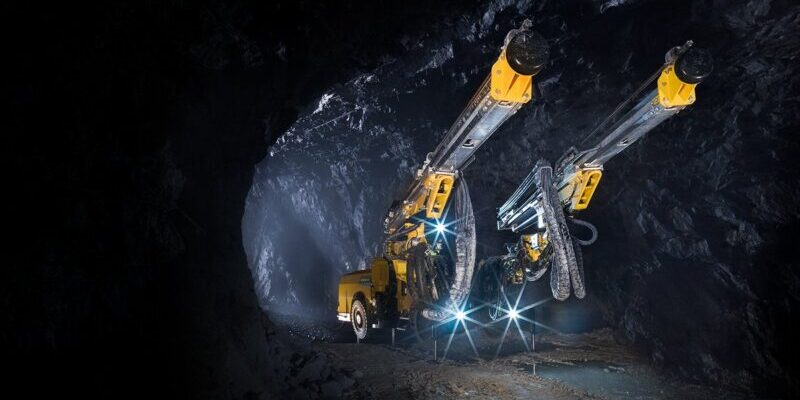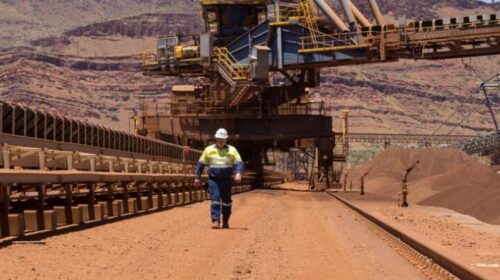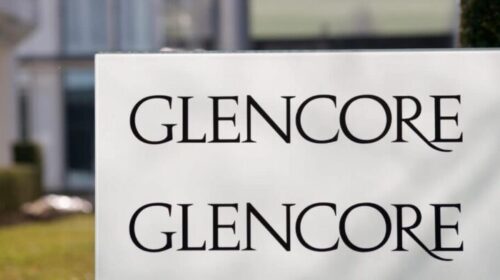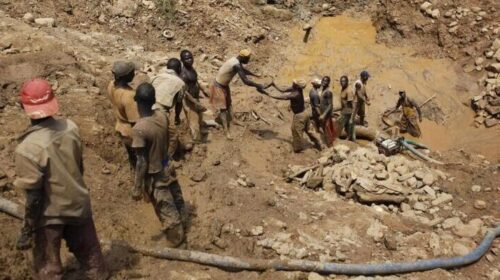Epiroc aims to halve carbon dioxide emissions in operations as part of 2030 goals
Mining and infrastructure equipment multinational Epiroc this week released its 2030 sustainability goals, which include halving carbon dioxide (CO2) emissions from operations, transport and major suppliers, as well as from customers’ use of Epiroc equipment.
“These are challenging targets, but we will invest in developing battery technology to deliver on these targets. These goals are in line with the United Nations Framework Convention on Climate Change (UNFCCC) 2015 Paris Agreement and the UN 2030 Agenda for Sustainable Development,” said Epiroc president and CEO Helena Hedblom.
“Our products are developed with the aim of meeting our customers’ increased demand for solutions that reduce their environmental footprints and address emission regulations. Our products are also improving the safety and health conditions for employees thanks to solutions for autonomous operations and remote control, mechanised equipment and battery driven solutions, to name a few,” she said.
Epiroc is continuously innovating to make its equipment as climate-friendly and safe as possible. The new generation of battery-electric mining machines, which is generating strong interest from customers globally, is one example. Epiroc’s package of digital solutions, 6th Sense, including automation, also goes a long way to reduce customers’ environmental impact, as well as to improve health and safety conditions.
“Since the majority of the CO2 emissions occur in the use phase of our products, it is crucial that we not only limit our own emissions in operations and transport, but also take on the greater challenge to reduce the emissions when the products are in use. We are working together with our customers to reduce the impact on climate,” Hedblom emphasised.
Epiroc believes in reducing its environmental footprint across the value chain by taking a life cycle approach to innovation, to focus on resource efficiency and have group targets in place.
“We have a Sustainability Policy and procedures in place to ensure that our products and services are developed with the aim of meeting the productivity, quality, functionality, safety and environmental needs of our customers. Combating climate change is key for society as well as business and Epiroc’s ambition is to be part of the solution by continuously developing new and improved products and services that add value to our customers and address their key challenges.
“A significant portion of the environmental footprint concerns the use-phase of our products. We work closely with our customers to supply them with strong service offerings and smart product design that can minimise waste and maximise the value of the customers’ investments.”
For each focus area, there are a number of targets and key performance indicators to ensure that the business stays competitive, innovative and ethically sound. The priorities are set to ensure that it can capture opportunities while at the same time reducing the risks. The areas that encapsulate its commitments are to live by the highest ethical standards, safety and well-being of people, and leading in responsible and efficient use of resources.
Further, Epiroc’s materiality assessment includes the most material environmental, economic, safety, human rights, labour and ethical topics that it needs to manage, monitor and communicate. It is the result of internal workshops and stakeholder dialogues, taking into account emerging trends and other input. These are also in line with its resources responsibly and efficientcy commitments encompassing its operations, supply chain and equipment.
“Sustainability and corporate responsibility are integrated in Epiroc’s customer offerings and our business processes. We believe this to be fundamental for building a company to be well equipped to tackle future challenges and to embrace possibilities in a rapidly changing world.
“Sustainability is clearly up on the agenda for the coming years, and we will also have short-term targets, and will follow up monthly on these targets and, of course, on all the activities that we are now doing to deliver on these goals,” said Hedblom.
A major shift in the mining equipment industry is the trend towards automation, interoperability and digitalisation, as part of the emergence of intelligent mining, which is focused on cost reduction, productivity increases, performance-critical technologies and safety in the mining sector. A higher level of automation reduces labour costs and health and safety risks.
Another goal is to strive for a culture of zero harm to people through the roll out of SafeStart, which is Epiroc’s programme to secure a safe work environment.
Other examples of Epiroc’s new goals for 2030 include doubling the number of women in operational roles, substantially reducing work-related injuries, and further strengthening the group’s commitment to the company’s Code of Conduct.
“As new CEO for Epiroc from March 1, my priorities are clear; they are innovation, continuing to grow our aftermarket, to strive for operational excellence, and sustainability. With the new sustainability goals for 2030, we are raising our ambitions in this area. Epiroc is proud to help transform the mining and infrastructure industries to become as sustainable as possible,” she concluded.
Source: miningweekly.com





